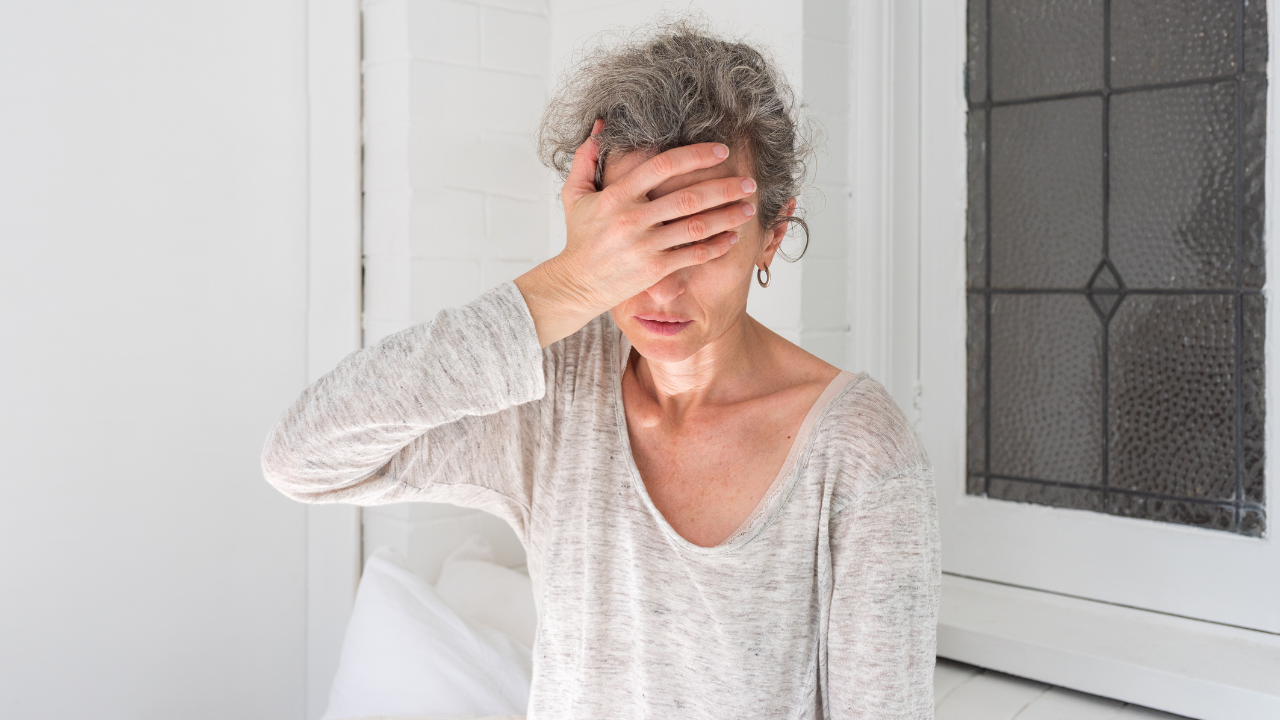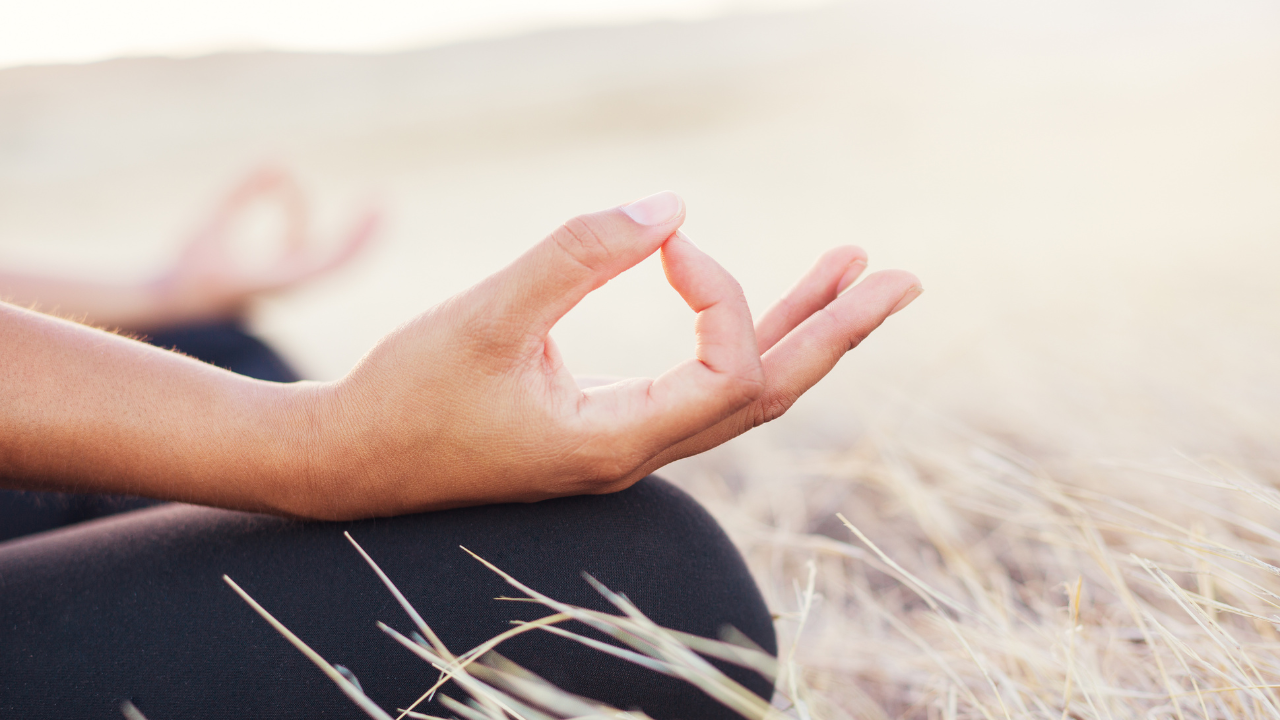The Dish on Perimenopause and Menopause.
Oct 17, 2022
I wish I'd learned the scoop about ‘the change’ when I reached 42 years of age. Suddenly, my excellent deep sleep was rudely interrupted by night sweats. Belly fat spilled over like frosting on a cupcake when I wore my favorite low-ride jeans. Intimacy was accompanied by a burning sensation. My typical mental calm, more times than not, felt like it morphed into a ghoul from Michael Jackson's ‘Thriller’.
Thanks to medical organizations like the North American Menopause Society (NAMS), 20 years ago, pioneering doctors and researchers started the first trials on women to discover more about menopause. Before this, most medical research was conducted on men!

Today science has learned much about the symptoms of perimenopause and menopause and discovered what can be done to help.
What's the "official" definition of perimenopause and menopause?
Perimenopause is when our ovaries release fewer eggs and estrogen production slows. Periods aren't predictable anymore, and many symptoms, like hot flashes, start appearing.
Menopause is defined as the time when a woman no longer has a menstrual cycle for an entire year. When we reach menopause, we've lost 70% of our estrogen. The ovaries have completely stopped working and are no longer releasing eggs.
Estrogen plays a huge role in our overall mental, physical, and pelvic health.

What age does perimenopause start?
The average age is 51, but some women can start early in their 30s or later in their 50s.
How long do symptoms last?
The range is 4-8 years. Symptoms vary significantly between women. Not all symptoms listed below are experienced by every woman.
What are the most common symptoms?
- Frequent changes in mood.
- Increased belly fat.
- Hot flashes and night sweats.
- Vaginal dryness.
- Lowered sex drive.
- Painful intimacy.
- Headaches, aches, and pains.
- Anxiety.
- Depression.
- Brain fog and difficulty concentrating.
- Thinning and more brittle hair/nails.
Why do we gain belly fat?
When the body loses estrogen, the fat that surrounds the internal organs, called visceral fat, tends to increase. This fat is different from subcutaneous fat, found just under the skin.
Visceral fat is not dormant. Instead, it actively produces pro-inflammatory cytokines, inflammatory molecules from our immune system. This can keep our body in a state of inflammation. So it’s super important to keep the waist weight gain at a minimum for overall health.

What Can I Do?
Because visceral fat is hormonally mediated and inflammatory, eating anti-inflammatory foods and exercising (which also decreases inflammation and adds to brain health) is super important.
Research points to the quality of a woman's lifestyle as a significant marker of health.
Sleep
Make sleep a priority. Go to sleep at the same time every night. Establish a nightly ritual of no tech, low lights, and reading a physical book an hour before bedtime.
Exercise
Do a daily 30-minute exercise walk, best done in nature. This, plus a weight lifting/strength training program 2x's a week, can reduce visceral fat and keep your brain and body healthy.
Eat
The best foods are good quality, non-processed, whole foods versus lots of processed foods (think frozen foods, chips, sugared cereals, etc.).
Lean proteins include salmon and grass-fed meats (chicken, beef, turkey) plus organic eggs.
Fruits (organic blueberries, raspberries, and strawberries), vegetables, legumes and yogurt.
Whole grains include whole oats, whole grain rice, barley and buckwheat. Whole grains are packed with nutrients like protein, fiber and antioxidants. They help you feel full and satisfied, which is key to maintaining a healthy weight.
Fats are a must (!!) so olive oils, avocado, nuts and seeds.
Keep sugar on the low down (we all enjoy our treats in moderation!).

Calm
Practice some form of mind quieting for 5-15 minutes once a day, best after your first coffee in the morning, matcha, or tea. Whether listening to your favorite Tibetan bowl sounds, guided meditation on Headspace, or focusing on the sound of your breathing with the hum of the air conditioner in the background, this helps calm the mind.
What are symptoms "down there"?
Lack of estrogen causes both urethral and vaginal tissues to become thin, less elastic, and less lubricated. Women may complain of pain with penetrative sex and even experience vaginal tissue tears.
Weak pelvic floor muscles plus lowered estrogen levels can lead to urinary incontinence.
Strategies to help your pelvic issues:
Test your hormone levels – best done by a doctor who knows how to test and interpret the results. Most medical students are not trained to test hormones, and many OBGYNs don't offer sex hormone testing. Go to websites like NAMS.org and ISSWSH.org to find a doctor in your area. Functional Medicine doctors may offer hormone testing as well.
More women-led startups now have at-home hormone testing kits AND physicians who can interpret the results on their platform. The MD reviews and directs a plan of care. After a month or so, you’ll retest your hormone levels to measure the effects of their hormone replacement therapies and see if you feel better.
Start hormone replacement therapy or bioidenticals EARLY. Hormone replacement therapy (HRT) received a bad reputation 20 years ago as it was believed to cause breast cancer. Oral estrogen, or estrogen-rich topical creams combined with progesterone, can be used safely for most women. Studies by NAMS scientists/doctors show that a woman can start HRT when she first notices perimenopausal symptoms. Early treatment can help you feel less symptomatic and further protect your brain and body health throughout your lifetime.
- Use lots and lots of lubrication during intimacy. Many women-led companies are developing safe, organic lubrication products for vaginal tissues. Test out a few and decide which ones you prefer for your body.
- Consult a pelvic physical therapist for an in-depth evaluation of your pelvic floor and function.
- Do an affordable online home program, PelvicSense, or www.pelvicsense.com. Learn about your pelvic floor, and practice their mind & body exercises to improve your bladder, bowel, sexual, and core stabilization functions.
Do remember!
Perimenopause and Menopause are a normal and natural part of every woman’s lifetime.
Take action to make this transition a smooth and comfortable one. It doesn’t have to be filled with angst, sorrow, and pain. See it as a new beginning, a further discovery of self.

www.pelvicsense.com

